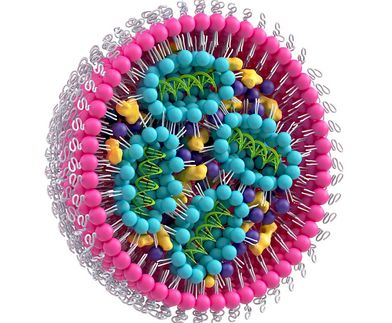BioNTech and Australia’s State of Victoria Form Strategic Partnership to Establish mRNA Research Center and Manufacturing Facility
BioNTech SE announced that it has agreed a Letter of Intent with the State of Victoria in Australia on a strategic partnership between the State and BioNTech to collaborate on the research and development of potential mRNA-based vaccines and therapies. As part of the partnership, the parties will establish a research and innovation center in Melbourne to facilitate the transition of encouraging academic research into clinical development. BioNTech plans to set up a clinical scale end-to-end mRNA manufacturing facility based on its BioNTainer solution in Melbourne with the aim of supporting the design, manufacture and clinical testing of product candidates. Part of BioNTech’s global network, the facility is expected to attract interest from researchers locally, regionally and globally.

Symbolic image
pixabay.com
“Science and innovation can only make a difference if it is applied outside of the laboratories and reaches people worldwide. This partnership is a major step forward to enable access to mRNA technology and promote collaborations in the Asia-Pacific region,” said Prof. Ugur Sahin, M.D., CEO and Co-founder of BioNTech. “Australia provides excellent academic research, and we are looking forward to collaborating with world-class scientists and researchers to strengthen Australia’s mRNA ecosystem and to jointly develop potential novel treatments and vaccines for people worldwide.”
As part of this collaboration, the State of Victoria and BioNTech will establish a research and innovation center, directed in partnership with the State, with the aim to support Australia’s mRNA ecosystem by curating projects and to determine their potential transition into preclinical and clinical development, supported by BioNTech’s advice and know-how. The partnership will also include the research and development of experimental therapies including mRNA-based product candidates for indications with high unmet medical need, for instance in oncology. BioNTech will support the R&D efforts on a project-by-project basis with the Company’s expertise in mRNA research and clinical development of potential new products.
In addition to driving innovative translational research, BioNTech will also support local delivery by developing and commissioning an end-to-end clinical-scale manufacturing facility for mRNA-based medicines and product candidates in Melbourne, Victoria. BioNTech has developed the BioNTainer, a mobile modular manufacturing unit requiring limited space for operation, allowing for timely and flexible local production of different mRNA-based constructs and products across a variety of indications, and expects to create hundreds of jobs during construction and operation in Melbourne.
“We at BioNTech are committed to global public health, and as we continue to expand internationally, we look forward to working jointly to drive the development of innovative medicines,” said Dr. Sierk Poetting, COO of BioNTech. “Our BioNTainers are designed as turnkey manufacturing sites for mRNA-based medicines and product candidates. In Melbourne, our BioNTainers will allow for an end-to-end production including fill and finish for clinical-scale manufacturing of mRNA candidates, once approved.”
BioNTech intends to further strengthen the clinical development capabilities in Australia and includes sites that aim to accelerate the development of its clinical stage oncology pipeline which currently encompasses a total of 18 product candidates in 23 ongoing clinical trials. BioNTech is currently recruiting cancer patients for two Phase 2 mRNA-based product candidates in Australia – BNT111 and BNT113 – and plans to further expand its clinical development, including for the Company’s candidate BNT211, which combines a CAR-T cell therapy approach with an mRNA vaccine.






















































